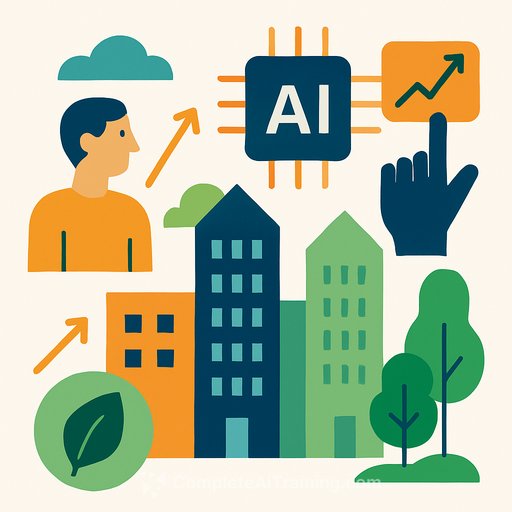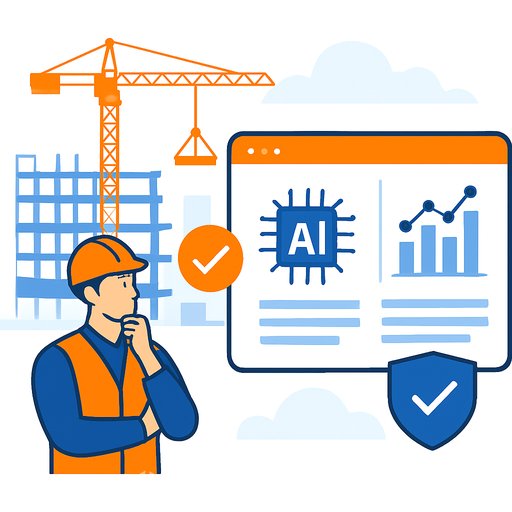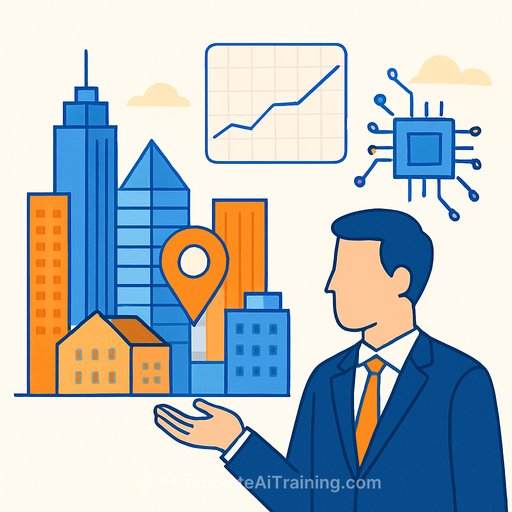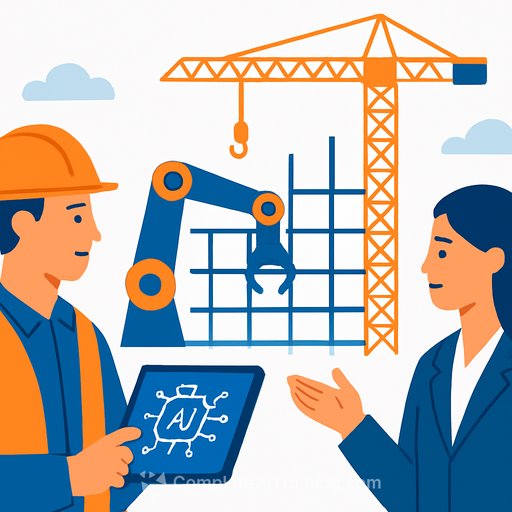Can Real Estate Achieve Decarbonisation Through AI and Technology?
The United Nations Environment Programme highlights that achieving global and national climate targets requires sharp cuts in emissions within both real estate operations and construction. The real estate sector accounts for about 40% of global greenhouse gas emissions. Yet, retrofitting manufacturing and logistics facilities alone could reduce energy consumption by up to 40%.
The real estate industry faces significant climate risks and will undergo major changes as the global economy shifts toward decarbonisation. Addressing these challenges requires adopting digital technologies that can help reduce emissions and improve efficiency.
Digital Technologies Driving Sustainability in Real Estate
The World Economic Forum’s (WEF) report, Reimagining Real Estate: A Framework for the Future, identifies several digital solutions critical for sustainable transformation. These include AI, the Internet of Things (IoT), cloud computing, digital twins, data centres, and advanced data analytics.
These technologies enable organisations to:
- Reduce energy demand
- Optimise resource use
- Improve circularity across value chains
Energy efficiency and carbon tracking tools help buildings meet performance criteria while potentially increasing asset value. The WEF report notes that sustainable buildings often command rental premiums and experience lower vacancy rates.
Smart building systems, AI-driven energy management, and predictive analytics enhance occupant comfort and reduce operational costs. With hybrid and remote work models becoming common, tools like occupancy sensors and space management software provide data-driven insights to optimise office layouts and minimise unused space. This supports smarter decisions on future development and leasing.
Christian Ulbrich, Global CEO and President of JLL and Industry Chair for Real Estate at WEF, stresses the importance of real estate as infrastructure and an economic enabler, underlining the urgency to meet climate commitments in the built environment.
Technology adoption also helps manage risks related to cybersecurity, equipment failure, and occupancy fluctuations. Digital twins, for example, automate risk assessments, monitor building systems, and ensure compliance to reduce costly incidents.
Economic and Environmental Benefits
The WEF suggests that widespread use of these technologies could cut global greenhouse gas emissions by up to 20% by 2050 across sectors including energy, materials, mobility, and agriculture. Economically, digital solutions may generate around US$1.5 trillion annually by 2030 through improved efficiency and lower environmental costs.
According to McKinsey, viable, scalable solutions already exist to significantly reduce emissions in real estate.
Cities consume two-thirds of global energy, making investment in renewables and smart grid technologies essential. Modernising power grids will support electrification efforts in buildings and transport by improving storage, balancing supply and demand, and ensuring reliable energy distribution.
The report also highlights the need to accelerate decarbonisation in manufacturing and supply chains. Buildings, including industrial facilities, contribute nearly 40% of greenhouse gas emissions globally, yet only 1–2% of buildings are retrofitted annually. Light to medium energy retrofits can unlock 10–40% energy savings, depending on the building type.
Challenges to Emissions Reduction
Despite the promise of digital technologies, several barriers remain:
- Emissions from diesel-powered construction equipment
- Fragmented digital systems and limited interoperability
- Insufficient investment in digital infrastructure
- Unequal regional access to technology
- Governance gaps around data-sharing that limit collaboration
The WEF calls for stronger collaboration among governments, businesses, and civil society to fully realise the emissions reduction potential of digital transformation in real estate.
For professionals in real estate and construction, understanding and applying these technologies is becoming increasingly important. Exploring AI and automation courses can help build relevant skills to support sustainability goals. Visit Complete AI Training for resources tailored to your field.
Your membership also unlocks:






